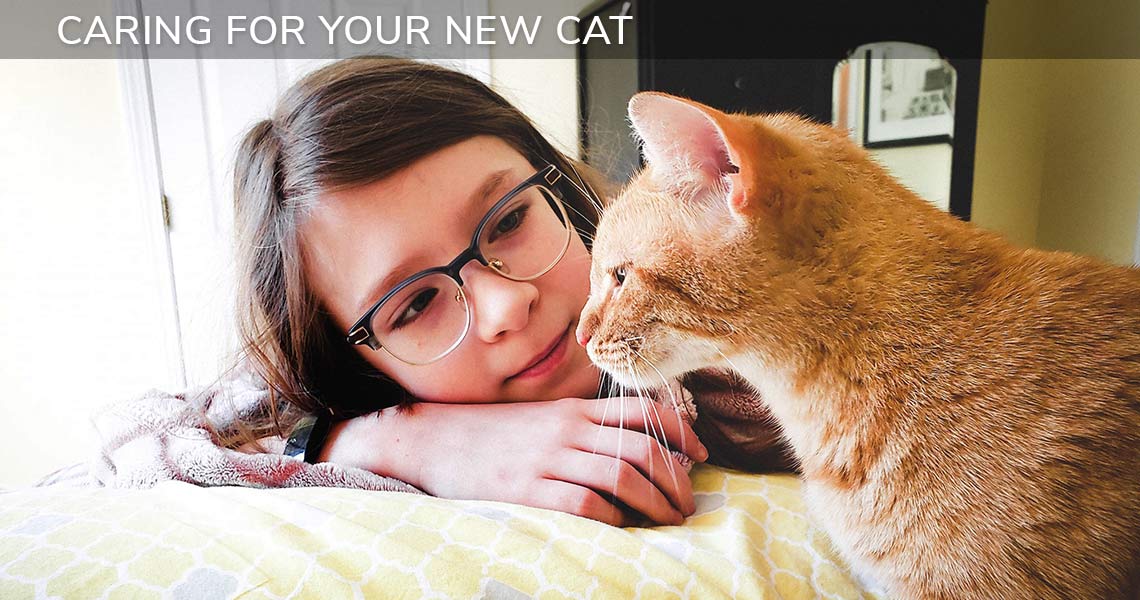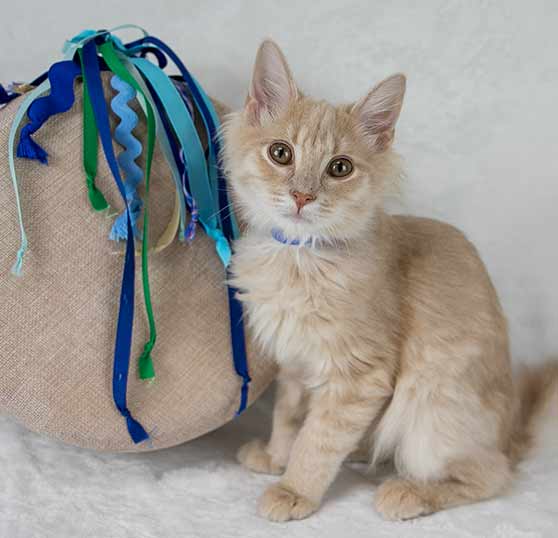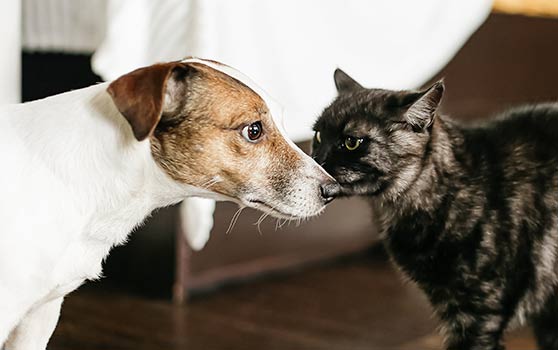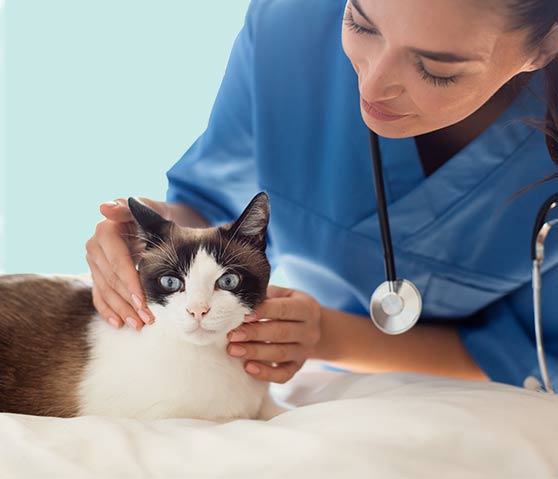
CARING FOR YOUR NEW CAT
Although we are Mostly Mutts, our organization also embraces cat rescue! We are pleased to share the knowledge and advice we offer our adopters and animal lovers to keep their furry felines healthy, happy, and safe.
BASIC SUPPLY LIST FOR NEW CAT OWNERS
- Litter box, litter, and a litter sifter. It’s a good idea to sift out solids and any clumping litter daily since cats do not like using a dirty litterbox. Regular clay litter is usually fine to use.
- Cat food and treats
- Water and food bowl
- Bed or fluffy blanket for your cat to cuddle on.
- Brush and nail clippers if you are going to groom your cat.
- Wand toys and small fluffy balls keep cats entertained. The spool of an empty toilet paper roll is fun for kittens to play with too.
- Always keep a Breakaway Collar with identification tags on your cat. (we provide these when you adopt from Mostly Mutts)
- A leash and harness (if you want to train your kitten to walk on a leash). This can be accomplished when you start training early.
- Scratching Post or pad – Providing a designated place for your cat to scratch will minimize the risk of scratching inappropriate things like furniture or carpeting.
- Cat cubby or other places for hiding (a cardboard carton with a cozy blanket inside works well!)
- Cat Carrier to transport your pet
INTRODUCING THEM TO THEIR NEW HOME

Your new cat might feel nervous in his new home. It’s always wise to initially set them up in a small space with their food, water, litter box, blanket/bed and small toys, so they feel secure. Let them slowly start to explore their new surroundings after a few days.
INTRODUCING YOUR NEW CAT TO OTHER PETS
If your new kitty is joining a home with other pets, they need to be introduced slowly so that everyone gets used to each other. Keep the door closed to your new kitten’s room. Allow your current pets to sniff the new kitty under the door for a few days. You can also exchange scents by giving your pets a blanket or towel with each pet’s scent on it.
Place a baby gate in front of the door of the new kitty’s room and open the door after a few days so that the pets can all meet face to face. Be sure to monitor this meeting, since kittens can climb or jump over a gate quickly. Once you’ve read your pet’s body language, you can determine if they can start to interact, but always make sure there is an escape route for your kitten if needed.

FEEDING
Feed your cat a good quality dry kibble. We do not recommend canned food unless there is a medical reason, but you should also check with your vet. A kitten’s food and water bowls should always be full. However, If your adult cat is overweight, you may want to provide food at specific times. Check with your vet. Most cats are grazers so they usually don’t overeat, but there are always exceptions. If you have dogs, you may want to place your cat’s food on an elevated surface otherwise the food bowl will be cleaned out by the dogs. If you have multiple cats, your new kitten will need his own food bowl since he will be eating food formulated for kittens. Eventually, your cats might not mind sharing a food bowl.
KEEP THEM HEALTHY
Cats are inquisitive. Their curiosity and climbing ability can put them at risk for injury and illness. Several house plants in your home and garden are toxic to cats. To safeguard your feline friend who may see plants as a nice snack, become familiar with the ones that are poisonous and avoid having them in your home. Here’s a link to a list of plants you should avoid having in your home.
Fragrance plugins can also cause severe allergic reactions in cats. Try to avoid using these in your home.
ANNUAL CHECK UPS AND VACCINES
Kittens begin their lives by getting a series of vaccines and a rabies vaccine (which is required by state law). Your vet can discuss the timing of these vaccines. Cats should follow up with a check up annually for their boosters and wellness visit.
Typical core protection vaccines prevent feline rhinotracheitis, calici virus, panleukopenia, feline leukemia viruses, chlamydia and rabies.

GET THEM SPAYED AND NEUTERED
We believe that kittens should be spayed early. Studies have shown that there is a much lower incidence of feline cancers when this procedure is completed before a cat’s first heat cycle.
Cats can go into heat as young as 4 months old. Your cat will live a healthier life by completing this procedure early.
GROOMING
Cats do a great job keeping themselves clean however, long haired cats need brushing to untangle fur and minimize hairballs from preening. If you start trimming claws while they are young, kittens will be more cooperative during their nail trim. Make sure you touch your new kitten’s paws often and gently press to retract their nails, so that they get used to this sensation. This will help prevent them from being frightened when they get their first manicure.
TRAINING
Despite popular belief, cats can be trained! Find a treat that your kitten likes. Shake the bag so that your kitten gets used to the sound. He will soon associate the sound with something positive. This comes in handy when you are trying to locate a hiding cat!
When introducing a scratching post, a treat is a great reward to encourage cats to always use this designated place to scratch.
Cats are wonderful companion pets who can easily live 10-15 years. Give them the best care you can, with lots of love to ensure that your kitty lives a happy and healthy life.


